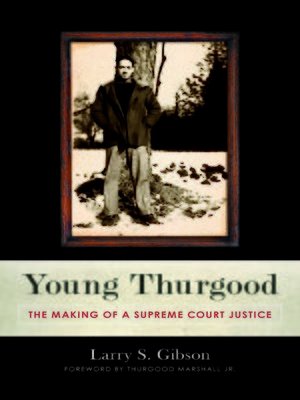
Sign up to save your library
With an OverDrive account, you can save your favorite libraries for at-a-glance information about availability. Find out more about OverDrive accounts.
Find this title in Libby, the library reading app by OverDrive.



Search for a digital library with this title
Title found at these libraries:
| Library Name | Distance |
|---|---|
| Loading... |
Like the movie Marshall, this book—theonly biography of Thurgood Marshall to be endorsed by Marshall's immediate family—focuses on his early civil rights struggles andsuccesses beforeBrown v. Board of Education. Thurgood Marshall was the most important American lawyer of the twentieth century. He transformed the nation's legal landscape by challenging the racial segregation that had relegated millions to second-class citizenship. He won twenty-nine of thirty-three cases before the United States Supreme Court, was a federal appeals court judge, served as the US solicitor general, and, for twenty-four years, sat on the Supreme Court. Marshall is best known for achievements after he relocated to New York in 1936 to work for the NAACP. But Marshall's personality, attitudes, priorities, and work habits had crystallized during earlier years in Maryland. This work is the first close examination of the formative period in Marshall's life. As the author shows, Thurgood Marshall was a fascinating man of contrasts. He fought for racial justice without becoming a racist. Simultaneously idealistic and pragmatic, Marshall was a passionate advocate, yet he maintained friendly relationships with his opponents. Young Thurgood reveals how Marshall's distinctive traits were molded by events, people, and circumstances early in his life. Professor Gibson presents fresh information about Marshall's family, youth, and education. He describes Marshall's key mentors, the special impact of his high school and college competitive debating, his struggles to establish a law practice during the Great Depression, and his first civil rights cases. The author sheds new light on the NAACP and its first lawsuits in the campaign that led to the 1954 Brown v. Board of Education school desegregation decision. He also corrects some of the often-repeated stories about Marshall that are inaccurate. The only biography of Thurgood Marshall to be endorsed by Marshall's immediate family, Young Thurgood is an exhaustively researched and engagingly written work that everyone interested in law, civil rights, American history, and biography will want to read.







